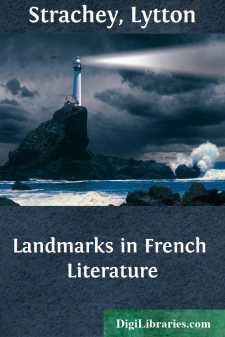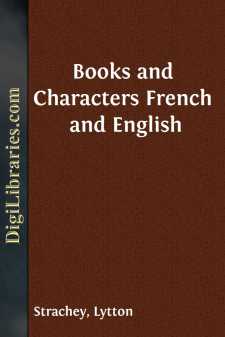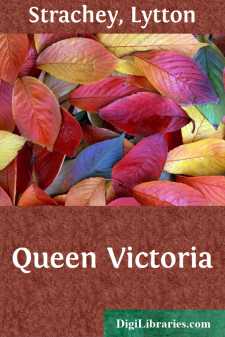Categories
- Antiques & Collectibles 13
- Architecture 36
- Art 48
- Bibles 22
- Biography & Autobiography 813
- Body, Mind & Spirit 142
- Business & Economics 28
- Children's Books 14
- Children's Fiction 11
- Computers 4
- Cooking 94
- Crafts & Hobbies 4
- Drama 346
- Education 46
- Family & Relationships 57
- Fiction 11828
- Games 19
- Gardening 17
- Health & Fitness 34
- History 1377
- House & Home 1
- Humor 147
- Juvenile Fiction 1873
- Juvenile Nonfiction 202
- Language Arts & Disciplines 88
- Law 16
- Literary Collections 686
- Literary Criticism 179
- Mathematics 13
- Medical 41
- Music 40
- Nature 179
- Non-Classifiable 1768
- Performing Arts 7
- Periodicals 1453
- Philosophy 64
- Photography 2
- Poetry 896
- Political Science 203
- Psychology 42
- Reference 154
- Religion 513
- Science 126
- Self-Help 84
- Social Science 81
- Sports & Recreation 34
- Study Aids 3
- Technology & Engineering 59
- Transportation 23
- Travel 463
- True Crime 29
Landmarks in French Literature
by: Lytton Strachey
Description:
Excerpt
CHAPTER I
When the French nation gradually came into existence among the ruins of the Roman civilization in Gaul, a new language was at the same time slowly evolved. This language, in spite of the complex influences which went to the making of the nationality of France, was of a simple origin. With a very few exceptions, every word in the French vocabulary comes straight from the Latin. The influence of the pre-Roman Celts is almost imperceptible; while the number of words introduced by the Frankish conquerors amounts to no more than a few hundreds. Thus the French tongue presents a curious contrast to that of England. With us, the Saxon invaders obliterated nearly every trace of the Roman occupation; but though their language triumphed at first, it was eventually affected in the profoundest way by Latin influences; and the result has been that English literature bears in all its phases the imprint of a double origin. French literature, on the other hand, is absolutely homogeneous. How far this is an advantage or the reverse it would be difficult to say; but the important fact for the English reader to notice is that this great difference does exist between the French language and his own. The complex origin of the English tongue has enabled English writers to obtain those effects of diversity, of contrast, of imaginative strangeness, which have played such a dominating part in our literature. The genius of the French language, descended from its single Latin stock, has triumphed most in the contrary direction—in simplicity, in unity, in clarity, and in restraint.
Some of these qualities are already distinctly visible in the earliest French works which have come down to us—the Chansons de Geste. These poems consist of several groups or cycles of narrative verse, cast in the epic mould. It is probable that they first came into existence in the eleventh and twelfth centuries; and they continued to be produced in various forms of repetition, rearrangement, and at last degradation, throughout the Middle Ages. Originally they were not written, but recited. Their authors were the wandering minstrels, who found, in the crowds collected together at the great fairs and places of pilgrimage of those early days, an audience for long narratives of romance and adventure drawn from the Latin chronicles and the monkish traditions of a still more remote past. The earliest, the most famous, and the finest of these poems is the Chanson de Roland, which recounts the mythical incidents of a battle between Charlemagne, with 'all his peerage', and the hosts of the Saracens. Apart from some touches of the marvellous—such as the two hundred years of Charlemagne and the intervention of angels—the whole atmosphere of the work is that of eleventh-century France, with its aristocratic society, its barbaric vigour, its brutality, and its high sentiments of piety and honour. The beauty of the poem lies in the grand simplicity of its style. Without a trace of the delicacy and variety of a Homer, farther still from the consummate literary power of a Virgil or a Dante, the unknown minstrel who composed the Chanson de Roland possessed nevertheless a very real gift of art....




